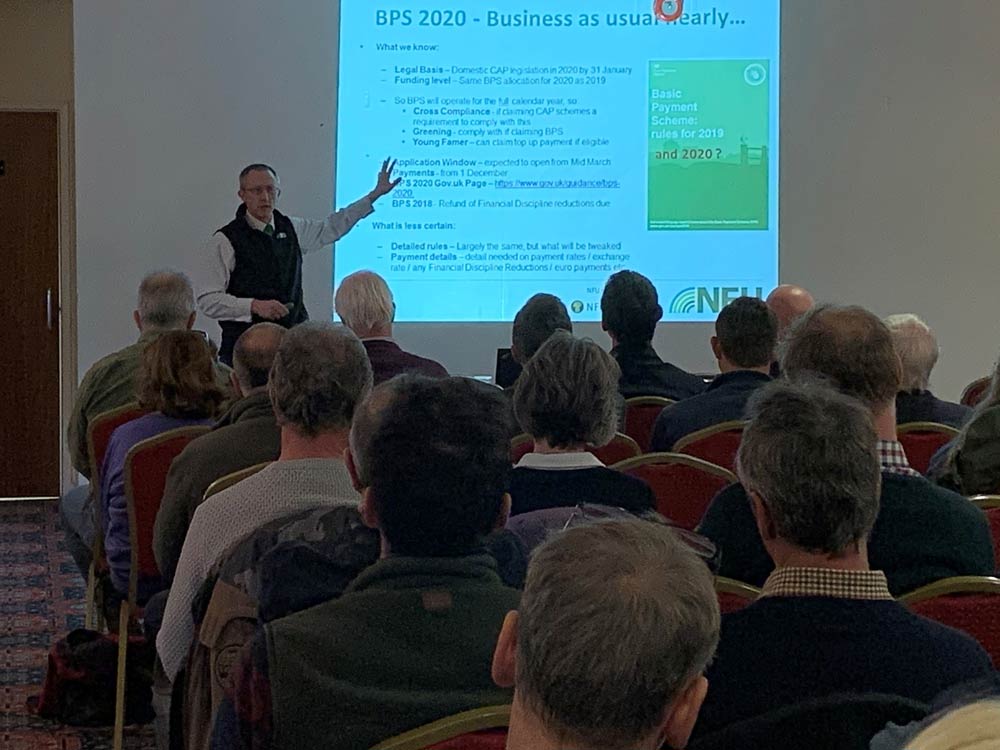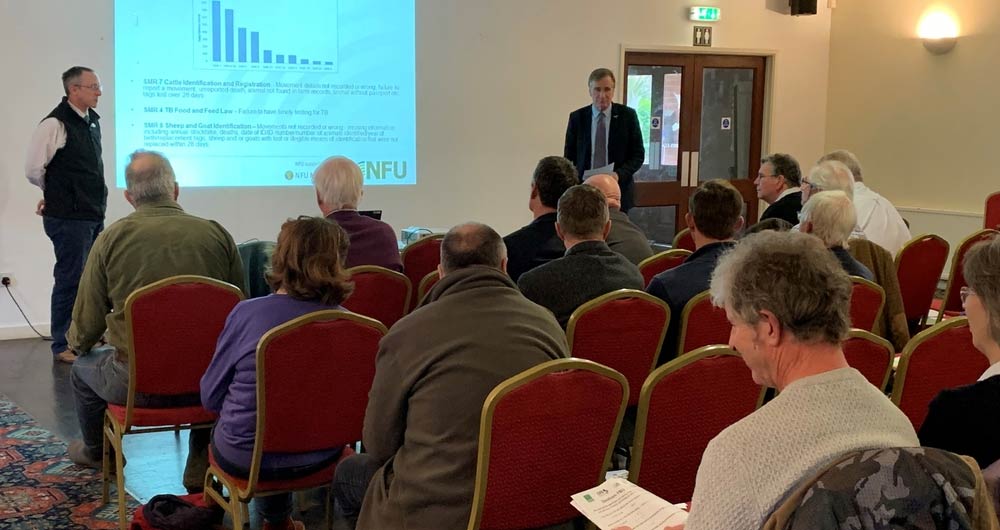Rob Holland of Anglian Water said that the UK’s soils contained more carbon than the UK’s forests and there was massive potential to store carbon in soils in the future.
Speaking at the update meeting at Dereham, Norfolk, he said soil had an extraordinary capacity to store water, as well as limiting the spread of pesticides and nutrients into watercourses.
"Soil is a key part of the water cycle. How fast it moves through, what it picks up, and what comes out into the watercourses not only affects our business, it affects your businesses in terms of what you are losing from your farm," he said.
He said farmers could look after their soil in a variety of ways, including planting cover crops, growing a more diverse range of crops, and reducing tillage.
Mr Holland was speaking at one of seven FBU meetings taking place across the region, arranged by organisations including the NFU, CLA, Championing the Farmed Environment (CFE), the Environment Agency, the Catchment Sensitive Farming Partnership and representatives from local water companies.
Each event also features a Nuffield Scholar speaker, with Yorkshire farmer Richard Hinchcliffe covering herbicide-resistant weeds at the Dereham meeting.
At Dereham, Simon Engler of the Environment Agency reminded farmers that they were responsible for anything spread on their land and they needed to be aware of waste regulations. Depositing unsuitable materials onto farmland could leave the farmer with expensive clean-up costs, or even facing prosecution, he warned.
He urged farmers to refer to the NFU and Environment Agency checklist on land-spreading waste and to be cautious when dealing with third parties.
“The key advice is, if something looks too good to be true, then it probably is. You need to ensure that what goes on is what you asked for, what you are expecting and complies with the rules and regulations,” he said.
Catchment Sensitive Farming officer Robert Camps highlighted the importance of drawing up an emergency action plan, and then ensuring farm employees were fully briefed on its contents.
He said accidents could happen on the best-run farm, with the potential for environmental damage to also occur through arson, vandalism or theft.
“When something goes wrong you don’t want to run around like Corporal Jones, shouting ‘don’t panic’. You and your staff want to have in mind the actions to take to limit any damage,” he said.
Other speakers looked ahead to potential changes as Britain leaves the European Union. Charlie Ennals, representing CFE, said the Environment Land Management Scheme was set to replace both Basic Payment Scheme (BPS) payments and Countryside Stewardship, but it was likely to be 2024 at the earliest before applications opened. She said money was still available within Countryside Stewardship and this would be lost if farmers did not apply.

Richard Wordsworth, the NFU’s senior adviser on BPS, said it was almost business as usual with BPS as Britain left the EU, but changes were under way behind the scenes as it moved from an EU scheme to a UK-funded and UK-legislated scheme.
For example, one issue still to be clarified was whether or not claimants could be paid in euros for 2020.
The remaining FBU meetings are:
• The Farmschool, Harpenden, Hertfordshire - 29 January
• The Forest Centre, Marston Moretaine, Bedfordshire - 31 January
• Wortwell Community Centre, Norfolk - 4 February
• Bluntisham Village Hall, Cambridgeshire - 6 February
• Lavenham Village Hall, Suffolk - 12 February
To book your place call CLA East, which is handling the registrations on behalf of all the organisations, on 01638 590 429 or email ZWFzdEBjbGEub3JnLnVr.
